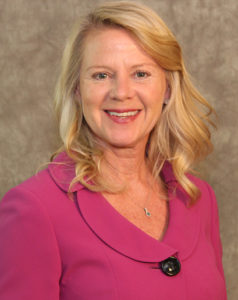
Building Strong Relationships Is Key
Becky Domagalski, RDH, makes a difference in the oral health of underserved populations by connecting them with critical dental care services.

Becky Domagalski, RDH, started her career in oral health as a dental assistant, going on to graduate from dental hygiene school in 1997. After many years in clinical practice, she developed an interest in dental industry, so she returned to school to earn a bachelor’s degree in dental hygiene in 2016. Today, Domagalski is a specialist care coordinator at Delta Dental of Michigan, and she kindly shared some insights into her unique career trajectory.
1. What do you enjoy most about working in your field?
My passion is in developing patient relationships. I worked at a periodontal office for 20 years. Root planing and treating those deep pockets can be painful. But even though patients hated it, they would come back.
I no longer work in a clinical capacity but I am developing relationships through corporate outreach and education. I still have the opportunity to help patients understand just how important oral health is.
2. You also work with the Healthy Kids Dental Program, administered in part by Delta Dental, to help Michigan kids younger than 21 who are covered by Medicaid. Tell us about this program.
Most kids who have Medicaid also have dental insurance. Yet many parents don’t understand this. So, part of my job is to educate parents about the importance of oral health and to get kids who haven’t been seen by a dentist into the dental chair.
We work with leaders, such as those in Head Start, helping to find participating dentists in their areas. We participate in events in socioeconomically deprived communities, support parents in establishing a dental home, and help with transportation needs. We’re also a dental provider resource for other groups such as the Greater Detroit Area Health Council.
3. You are involved in trying to get new legislation passed in Michigan to require that all children receive a dental screening prior to starting kindergarten. How did this come about and what is its current status?
When new legislators come into office, members of the Michigan Dental Hygienists’ Association hold a lobby day to talk about the dental hygiene profession as well as past and upcoming bills. About 3 years ago, we met with Rep. Scott VanSingel, who had a daughter with baby teeth. We convinced him of the importance of ensuring she had her first dental appointment by age 1. He was surprised to discover that she had multiple areas of decay.
Once he became aware of the extent of the problem in young children, VanSingel created a bill, HB 4223, that would require all children to see a dentist by kindergarten. It has been sitting in the Senate because of budget cuts. But it looks like it will be up for a vote soon. I expect it to pass.
4. What went into passing legislation for dental therapy licensure in Michigan in 2018?
The passing of this bill required collaboration of stakeholders such as the Michigan Council for Maternal and Child Health and the Michigan Dental Hygienists’ Association. Our national organization, the American Dental Hygienists’ Association, also provided case studies and testimony to the legislators. Also, it required correcting the misinformation that’s out there, which was tough. There have been so many dentists who’ve thought that dental hygienists could go for a weekend cruise to learn how to become dental therapists.
The rules are still being worked out, but hygienists will likely need to earn a master’s degree. We don’t have any schools that are firmly committed to this program yet. But once the rules are established, it will be up to them to create curricula, with guidance from the Commission on Dental Accreditation.
5. How has the COVID-19 crisis impacted dental hygienists in your area?
The Detroit metro area is one of the highest in the nation for COVID-19 infections. Dental hygienists are anxious to understand all of the new personal protective requirements. Dental students are waiting for the final verdict on what taking their dental boards will look like. Unfortunately, dental professionals are at the greatest risk for contracting COVID-19 due to the nature of the business, and many dental hygienists fear returning to work.

